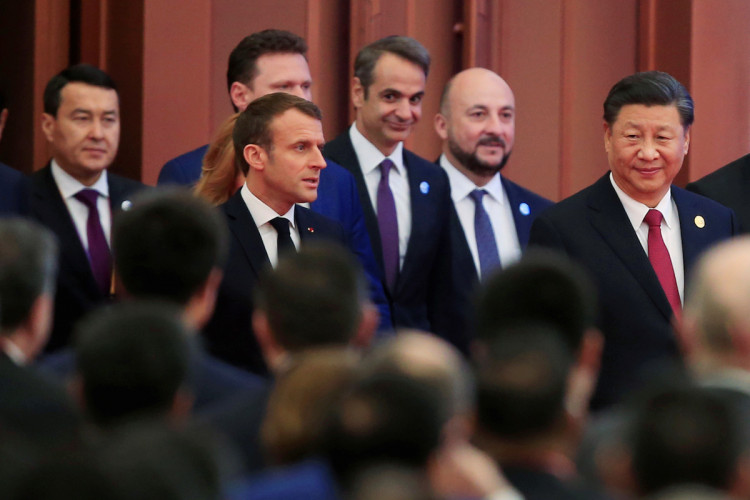In an apparent bid to counter the United States, Chinese President Xi Jinping has given French President Emmanuel Macron an unusually extravagant reception during his state visit. This gesture is seen by some analysts as an indication of China's growing efforts to attract key European Union (EU) allies.
On Friday, the two leaders toured southern China together, with Macron scheduled to share Chinese tea with Xi at his father's former residence in Guangzhou, the capital of the economically significant Guangdong province. Such joint excursions with visiting leaders are uncommon for Xi, highlighting the importance China places on its relationship with an influential EU member as it seeks support against the U.S.'s "all-round containment, encirclement, and suppression."
Zhao Suisheng, a professor of China studies and foreign policy at the University of Denver, said that China aims to work with countries like France to counter the U.S. in the context of the U.S.-China relationship. Noah Barkin, an analyst with the Rhodium Group, added that China's primary goal is to prevent Europe from aligning more closely with the U.S., making Macron an essential partner for Beijing. Diplomats often regard Macron as a critical driver of key EU policies.
European Commission President Ursula von der Leyen accompanied Macron to China, where they both pressured China on the Ukraine issue but failed to elicit any public changes in Xi's stance. Despite this, Macron received the full red-carpet treatment, while von der Leyen, who criticized China as "repressive" in a speech before her trip, experienced a more subdued reception.
In an editorial, China's state-backed Global Times newspaper argued that fostering the China-France relationship as a bridge for China-Europe cooperation would be beneficial to all parties and the world. Former French Prime Minister Jean-Pierre Raffarin, who has frequently traveled to China, admitted to Reuters that some of Xi's charm has had an impact.
In Washington, China's diplomatic engagement with France is met with skepticism. While China would welcome a closer economic relationship with Europe as tensions with the U.S. escalate, a significant shift remains unlikely at this stage, according to sources familiar with the U.S. government's thinking.
As part of its efforts to break free from U.S. containment, China has significantly increased its diplomatic spending this year and welcomed leaders and high-ranking officials from various countries, including Singapore, Malaysia, Spain, and Japan. China also facilitated a surprise détente between Saudi Arabia and Iran in March, positioning itself as a Middle East peacemaker motivated by its desire to shape a multi-polar world.





